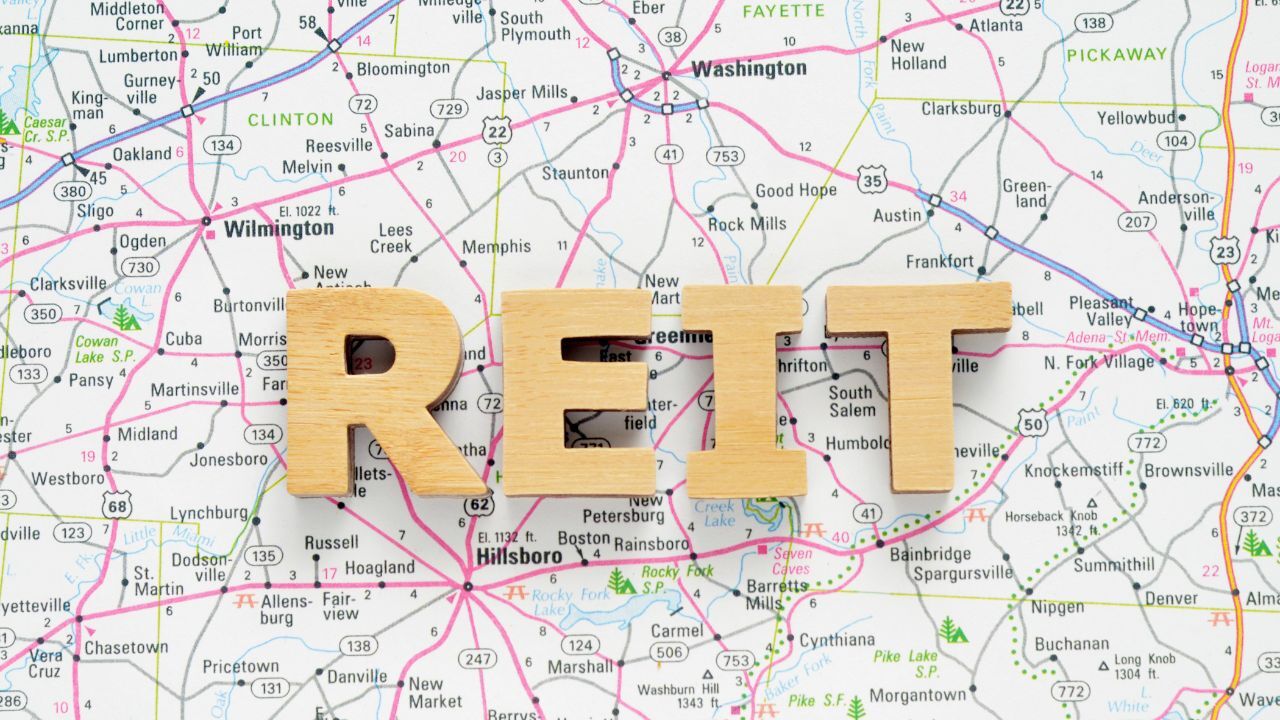 You don’t need to buy a house or manage tenants to get into real estate investing. If you’ve been curious about investing in property but aren’t ready for the hands-on commitment, Real Estate Investment Trusts (REITs) might be the perfect solution.
You don’t need to buy a house or manage tenants to get into real estate investing. If you’ve been curious about investing in property but aren’t ready for the hands-on commitment, Real Estate Investment Trusts (REITs) might be the perfect solution.
What Is a REIT?
A REIT (pronounced “reet”) is a company that owns, operates, or finances income-producing real estate. These companies pool money from multiple investors to purchase properties like apartment complexes, office buildings, shopping centers, or even hospitals and warehouses.
When you invest in a REIT, you’re essentially buying shares in a company that makes money from real estate—and you earn returns through dividends and potential stock appreciation.
Why Invest in a REIT?
REITs are a great option for those who want to dip into real estate without the hassle of owning physical property. There’s no need to handle repairs, find tenants, or worry about property management. Instead, you can invest the same way you’d buy stocks or mutual funds—often with much lower upfront costs.
Other benefits include:
- Liquidity: Unlike physical real estate, many REITs are traded on major stock exchanges, so you can buy or sell your shares easily.
- Diversification: REITs often invest in multiple properties across different markets, helping you spread out risk.
- Passive Income: Most REITs are required by law to return at least 90% of their taxable income to shareholders, making them a consistent source of dividends.
Types of REITs
There are a few different types of REITs to consider:
- Equity REITs: These invest in and own properties, earning money through rent and property value increases.
- Mortgage REITs (mREITs): These invest in real estate debt (like mortgages) and earn income from interest.
- Hybrid REITs: A mix of both property ownership and mortgage investments.
You can invest in REITs through a brokerage account, retirement fund, or REIT-specific mutual fund or ETF.
Things to Keep in Mind
While REITs are more accessible than buying property outright, they still come with risks. Market conditions, interest rates, and economic shifts can affect performance. It’s a good idea to do your research or talk with a financial advisor to find the right REIT for your goals.
A Smart Entry into Real Estate
If you’re ready to get involved in real estate but aren’t quite ready to buy your first property, REITs offer a smart, low-barrier way to start. They’re flexible, passive, and ideal for investors who want real estate exposure without becoming landlords.
 Windows play a vital role in shaping your home’s ambiance, bringing in natural light, enhancing privacy, and even improving energy efficiency. The right window coverings can make all the difference, balancing style and functionality while complementing your décor. With a wide range of options available, from classic treatments to cutting-edge technology, finding the perfect fit for your space is easier than ever. Here’s a breakdown of some of the best window covering choices to consider.
Windows play a vital role in shaping your home’s ambiance, bringing in natural light, enhancing privacy, and even improving energy efficiency. The right window coverings can make all the difference, balancing style and functionality while complementing your décor. With a wide range of options available, from classic treatments to cutting-edge technology, finding the perfect fit for your space is easier than ever. Here’s a breakdown of some of the best window covering choices to consider.
 Ensuring a home is equipped with the right safety devices is crucial for protecting both family members and property. From fire prevention to emergency preparedness, having the right tools in place can make all the difference in a crisis. Here are ten essential safety items that every household should have.
Ensuring a home is equipped with the right safety devices is crucial for protecting both family members and property. From fire prevention to emergency preparedness, having the right tools in place can make all the difference in a crisis. Here are ten essential safety items that every household should have. Your home is more than just a place to live, it is where your family feels safe and where your most valuable belongings are kept. Protecting it from potential dangers like fire and flooding is essential. Thanks to modern technology, keeping your home secure has never been easier. Here’s how you can safeguard your home with smart strategies and the latest innovations.
Your home is more than just a place to live, it is where your family feels safe and where your most valuable belongings are kept. Protecting it from potential dangers like fire and flooding is essential. Thanks to modern technology, keeping your home secure has never been easier. Here’s how you can safeguard your home with smart strategies and the latest innovations. Buying a home is one of the biggest financial and lifestyle decisions you’ll make. While most buyers focus on location, price, and size, there are several overlooked factors that can impact your long-term satisfaction. Here’s what to keep in mind when searching for the perfect home.
Buying a home is one of the biggest financial and lifestyle decisions you’ll make. While most buyers focus on location, price, and size, there are several overlooked factors that can impact your long-term satisfaction. Here’s what to keep in mind when searching for the perfect home. Your backyard has the potential to be more than just an outdoor space, it can become a personal retreat, a place to unwind, entertain, and make lasting memories. With a few simple enhancements, you can transform your yard into a stylish and functional oasis that you’ll love spending time in. Here are some easy and affordable ways to elevate your outdoor space.
Your backyard has the potential to be more than just an outdoor space, it can become a personal retreat, a place to unwind, entertain, and make lasting memories. With a few simple enhancements, you can transform your yard into a stylish and functional oasis that you’ll love spending time in. Here are some easy and affordable ways to elevate your outdoor space.
 In a competitive real estate market, buyers may feel pressured to make their offers more attractive by waiving contingencies—especially the home inspection. While skipping a home inspection might seem like a way to speed up the buying process or make an offer stand out, it can be a costly mistake with long-term consequences. Here’s why a home inspection should always be part of your home-buying process, no matter how competitive the market is.
In a competitive real estate market, buyers may feel pressured to make their offers more attractive by waiving contingencies—especially the home inspection. While skipping a home inspection might seem like a way to speed up the buying process or make an offer stand out, it can be a costly mistake with long-term consequences. Here’s why a home inspection should always be part of your home-buying process, no matter how competitive the market is. Why Location is Everything in Selling a Home
Why Location is Everything in Selling a Home